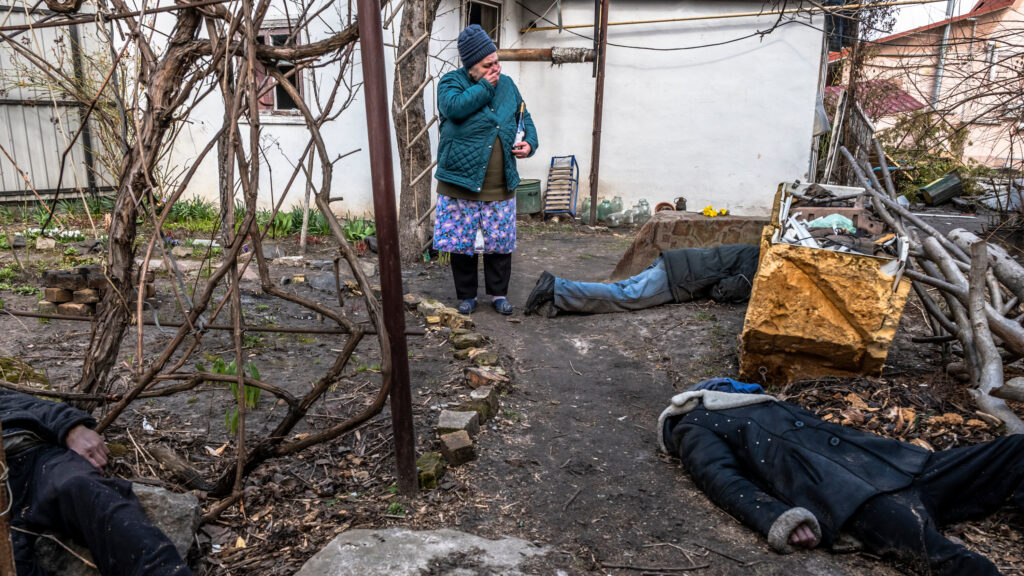Thursday
As news out of Ukraine continues to give us gruesome tales of Russian torture, shelling of civilian areas, and wholesale slaughter of prisoners and villagers, one of the most graphic literary images I’ve ever encountered comes to mind: a Russian army officer ordering a prisoner skinned alive to get him to talk. We encounter “Boris the Manskinner” in Haruki Murakami’s novel The Wind-Up Bird Chronicle.
Boris explains the origins of his tactics to the Japanese prisoners he has captured in the latter days of World War II. He blames it all on the Mongolians:
They love to kill people in ways that involve great difficulty and imagination. They are, shall we say, aficionados. Since the days of Genghis Khan, the Mongols have enjoyed devising particularly ruel ways to kill people. We Russians are painfully aware of this. It is part of our history lessons in school. We study what the Mongols did when they invaded Russia. They killed millions. For no reason at all.
Except there is a reason, as he goes on to explain. They do it because they enjoy it. And because no one in command tells them not to.
Which sounds like the situation in Ukraine. The Russians aren’t committing war crimes as an intimidation tactic. They’re doing so because they can.
According to Australian general Mick Ryan, whose analysis on Ukraine I’ve been following, armies that commit war crimes to this extent are, barring other factors, generally headed for defeat. Such behavior points to a lack of the discipline needed to carry out effective military operations. In a series of tweets Ryan observes,
[T]his behavior by the Russian soldiers is further evidence (as if we needed any more) that the Russian Army is professionally corrupt & morally bankrupt. The entire Russian Army chain of command, because of the leadership environment they have nurtured, is responsible.
An army that either explicitly (or implicitly) permits such behavior will never be capable of fighting as an effective and cohesive force. Wars still have rules. An army that operates with an ‘anything goes’ ethos is just not an army. It is an armed group of criminals.
This is why, Ryan goes on to say, “the study of the profession of arms, ethics, and the profound responsibility of exercising lethal force on behalf of one’s nation, is such an important area of study and indoctrination in military institutions.”
Such reasoning leads Ryan to inveigh also against “rough justice and retribution.” The courts, not vengeful Ukrainians, must decide the fate of Russians who commit war crimes. “These murderous scumbags,” he writes, “must be tried and made an example of, so that others know we will never allow them to get away with it.”
Ryan concludes with an important reminder:
Remember, there is a reason Ukraine is fighting for its sovereignty, and why we are supporting it. They are fighting for their existence, and for a world where such acts are not permitted nor tolerated.
In the novel, Boris loses touch with reality when he tortures the innocent son of a high Community Party official. Stalin’s forces, in other words, turn on themselves because thuggish behavior is calling the shots. While the fictional Boris himself escapes, the army that Stalin built up—and that Soviet and Russian leaders ever since have boasted of—has been exposed as a hollow shell, full of sound and fury but signifying nothing.
Or as Ryan puts it, “professionally corrupt & morally bankrupt.”
For further reading, check out my post where I compare Vladimir Putin to Boris.
